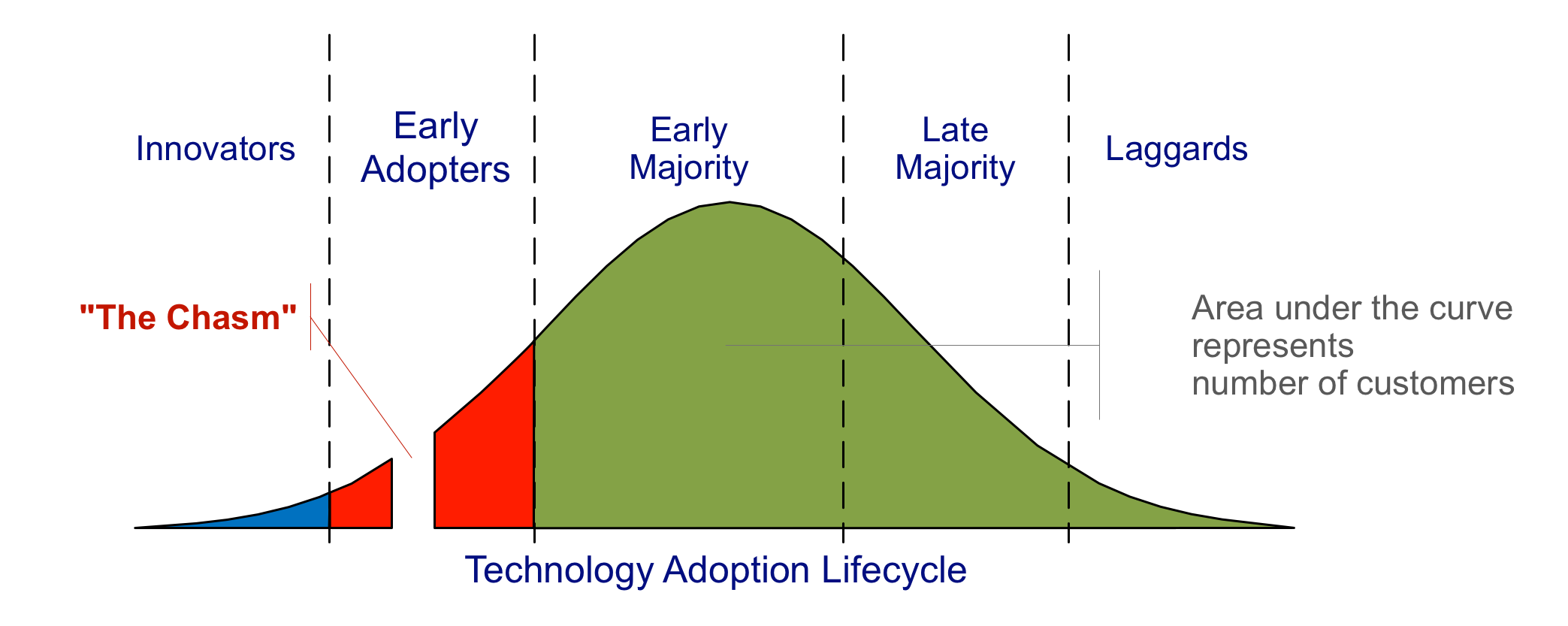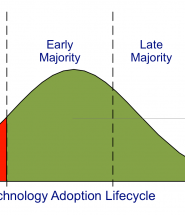(Even after you narrow down on your target audience, there are a lot of options for you to market your book. This tyranny of choice can be paralyzing. Should you set up Google ads? Or promote a post on Facebook? Do a book giveaway on Freado or GoodReads? Should you market your book only in a particular country or should you go global? What about doing a blog tour or a guest post? Or a KDP Select promotion? This post discusses the importance of first targeting your early adopters or mavens before trying to reach out to the rest of your audience.)
A few days ago, I began reading a book of short stories by Roald Dahl. I was so enchanted by one of the stories that I took it to my wife and persuaded her to sit down and read the story. Of course, after reading the story, my wife can’t stop talking about the book. In this case, I was not just a reader. I was a maven, an evangelist and an unpaid marketer.
The idea of finding your first opinion leaders who act as messengers to the rest of the market has been around for awhile in the high-tech business. Back in 1991, Geoffrey A. Moore wrote a marketing book titled ‘Crossing the Chasm’. The thesis of the book is that every business needs to find its early adopters before ‘crossing the chasm’ and reaching out to the main market. The book built its ideas on top of the innovation adoption life cycle which is a bell curve that looks like this:

This idea plays out over and over again in the high tech industry. For example, recently, Guy Kawasaki wrote out an entire book – titled ‘What’s the Plus‘ – evangelizing Google Plus. Now I’m not sure if Guy was paid to write the book, but the fact remains that he is willing to bet his credibility in order to get the word out about what he thinks is a great new social network.
This same idea can be applied to the business of book marketing and promotion. It’s not enough to identify your target audience. You need to figure out who among your reader set are mavens. Who among your audience will be willing to spend a few hours of their time reading a completely new book from an author whose name they have not heard? And get enthusiastic enough to spread the word about your book with their circle?
All reading mavens share certain characteristics:
– They are voracious readers in their genre
– They are willing to take a risk with new reading material
– They have strong opinions
– They express their opinions freely
– Their opinions are valued in their circles
– They are not doing it for the money
– They want to be the first to discover something
There are 3 types of mavens that are relevant to book marketing and you will notice a significant amount of overlap between the different types:
Thought leaders – these include authors with a following, people active on social media, bloggers and journalists. Such people are looking for great content to share with their followers. If your book catches the interest of a thought leader, chances are that the thought leader will go out of her way to ensure that your book’s message reaches her audience.
Karma chasers – these are people who are primarily looking to do good and ‘pass it on’. Their interest is in serving the greater good. Example – a person posting information about your book on a site like Reddit, Quora or an Internet forum in order to help the community.
Passionate advocates – this is a person who may or may not share information in general, but will do so if they have found something that captures their imagination. In my own case which I described at the beginning of this blog post, Roald Dahl’s story caught my attention in such a powerful way that I felt compelled to share it in order to increase my own pleasure. Another example of such mavens is the reader who hangs out on fan fiction sites.
When you release your book, it makes sense to make lists of 10-20 mavens from each of these categories. Then engage with them one at a time and get them to read your book. Even if a few of them like your book, your chances of getting the word out there will skyrocket.
Maven Traps
In his book ‘The Tipping Point‘, Malcolm Gladwell talks about ‘maven traps’. An example of a maven trap is the ‘Questions / Comments? Call 1-800” message that you sometimes find on the back of consumer products. Very few people are really going to take the time to call the number on the back of a cookie box. But the few people who do are potential mavens. And smart companies court such people thus creating a small army of mavens for their products.
The equivalent of a maven trap for your book would be your author website, Facebook fan page or book discussion forum. Not too many of your readers are going to visit these places. But the few people who do visit have the potential to turn into mavens for your book. Smart authors provide something of value at these venues in order to cultivate their mavens. This could be special information (such as ‘Facebook extras’, a behind the scenes look at your writing process or something else.)
Take the time to reach out to your mavens. Your book’s long term sales depends on them.
The next blog post in this series will address the issue of getting sufficient reviews for your book.


